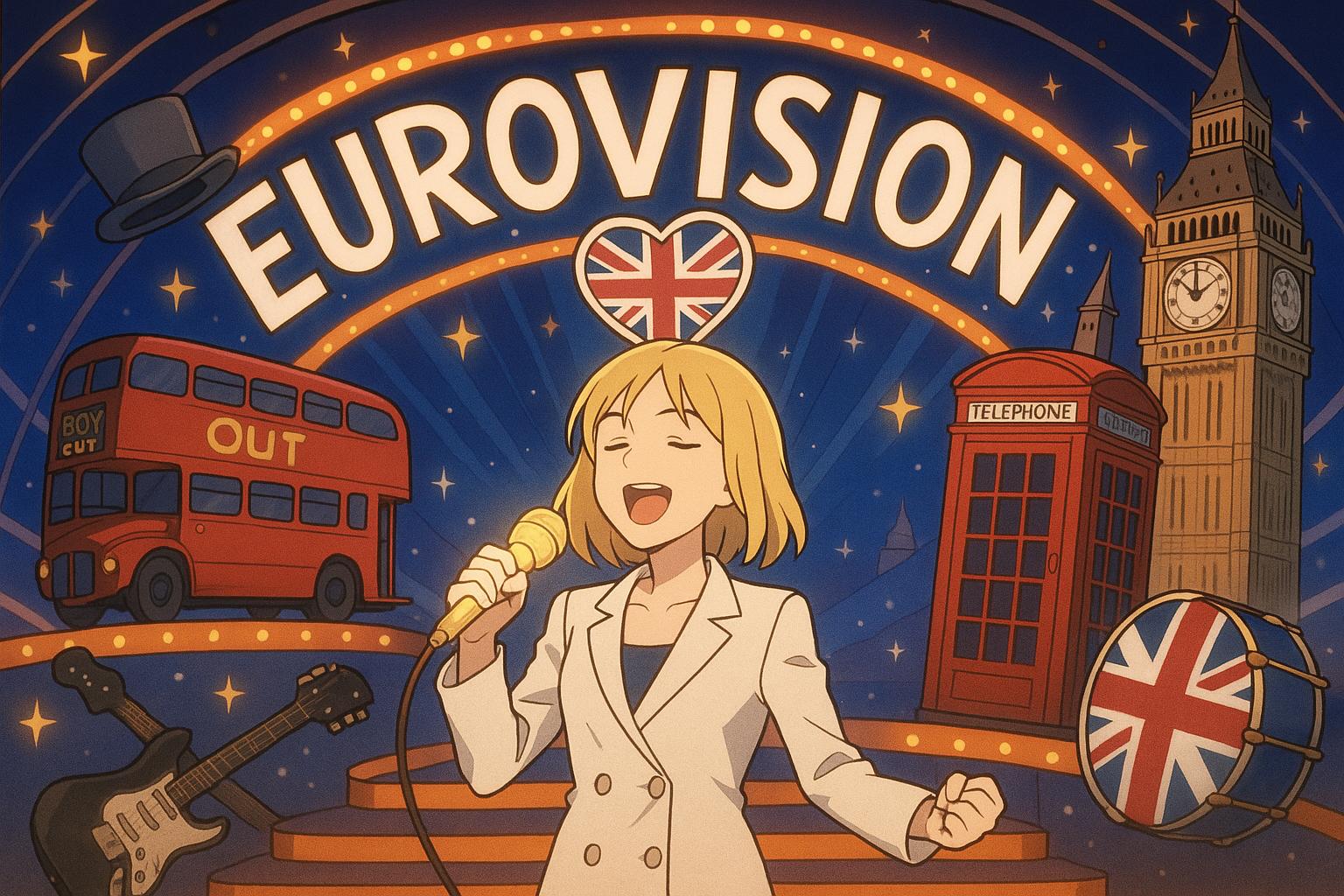With Eurovision approaching, the UK’s long and colourful history at the contest continues to spark debate and reminiscence. Since the success of Katrina and the Waves in 1997, when they emerged victorious with the upbeat anthem "Love Shine a Light," the nation has grappled with fluctuating fortunes in the annual event. With a diverse array of entries, some have charmed and entertained; others have drawn criticism, mirroring the zeitgeist of the times.
The early success of British entries is notable, with tracks such as "Puppet on a String," "Congratulations," and "Making Your Mind Up" not only winning accolades but also becoming staples of pop culture. These melodies, often hummable and catchy, represented a spirit of optimism and creativity that seems to have waned over the years. In recent performances, the disconnect between the country’s musical offerings and the public's enthusiasm has become apparent. For instance, while Sam Ryder's "Space Man" received acclaim and finished second in 2022—marking the UK's best performance since 1998—the entries that followed have failed to capture the same momentum.
Indeed, public sentiment suggests a sense of nostalgia for the Eurovision glory days. In a recent BBC Radio 2 poll, "Space Man" topped the list of listeners' favourite entries, followed closely by timeless classics like "Making Your Mind Up" and "Ooh Aah... Just a Little Bit." This demonstrates not just a fondness for the past but a yearning for entries that resonate on a deeper level with British audiences—a sentiment that has been echoed in various rankings and discussions surrounding the Eurovision legacy of the UK.
Critically, there’s an emerging perception that the UK’s recent entries lack the creative flair that once characterised its performances. The 2024 rankings of Eurovision entries highlighted this disparity, noting that the likes of "Love Shine a Light" and "I Belong" are often celebrated above more recent efforts. The notion that notable contemporary artists, such as Coldplay, Ed Sheeran, and Adele, are absent from the competition adds to the sense of missed opportunities. Many speculate that if these megastars were to represent the UK, they might revitalise its standing in the contest.
Adding to the narrative, the lyrics of this year's entry, "What The Hell Just Happened?", seem to channel a collective sentiment of confusion and chaos, reminiscent of the turbulent political landscape in the UK. The sharp wit in the lyrics reflects a reality that, for many, feels relatable yet disheartening. This satire on the current political climate intertwines with a recognition that Eurovision has often served as a barometer for national sentiment.
Historically, politically charged entries have mingled with the frivolous, producing a blend that often speaks more to national identity than mere competition. The echoes of political upheaval—like Theresa May’s controversial tenure or the aftermath of the Brexit referendum—cast long shadows over the spirit of the event, witnessing lyrics that resonate with the country's plight. The UK’s approach of using Eurovision to showcase its own narrative through song raises questions about the strategic direction artists should take in future competitions.
It’s also essential to reflect on the atmosphere surrounding the event itself and the cultural commentary it produces. As countries unveil their entries, contrasting lyrical themes and concepts offer insights into their respective national moods. Observing other contributions can provide a stark juxtaposition to the UK’s struggles, encapsulating an aesthetic of joy or resilience that has been noticeably absent from the British performance in recent years.
As with the upcoming contest, the hope remains that the UK will recapture its Eurovision spirit, one that captures the hearts—and ears—of not just the domestic audience but the international stage as well. The blend of nostalgia, political commentary, and artistic expression could very well set the tone for the next generation of UK entries, as stakeholders look to redefine what it means to compete on Europe’s premier musical platform once more.
Reference Map
- Article on UK Eurovision history and cultural impact.
- BBC Radio 2 listener poll results showcasing favourites.
- Daily Telegraph ranking of UK Eurovision entries.
- Background on Katrina and the Waves' Eurovision win.
- Insights into Sam Ryder’s "Space Man" and its significance.
- Details about the Eurovision history and public perceptions.
- Discussion on the UK's performance in Eurovision over the years.
Source: Noah Wire Services
